Zelenskyy in Crisis Mode as U.S.-Russia Summit Sparks Diplomatic Earthquake

On the Brink of a New World Order
A wave of anxiety is sweeping through Kyiv, and one British geopolitical analyst is pulling no punches in describing the mood at the top.
On his widely followed YouTube channel, UK-based strategist Alexander Mercuris delivered a blunt assessment of President Volodymyr Zelenskyy’s state of mind amid the shockwaves caused by the upcoming summit between U.S. President Donald Trump and Russian President Vladimir Putin in Anchorage, Alaska.
“Zelenskyy is in a panic,” Mercuris stated. “He is visibly angry. He is deeply sad. This is not just political frustration, it’s the emotional collapse of a leader realizing he may be cut out of the very peace process the West never wanted during the early stage of the conflict he’s been fighting for.”
Zelenskyy is reeling not only from the symbolic weight of Trump hosting Putin on American soil, a gesture widely interpreted as normalizing the Russian leader after years of isolation, but also from what he sees as broken Western promises.
“He was told that Russia would face crushing sanctions if it didn’t back down. But despite all the rhetoric, the big, decisive measures haven’t come. And now, instead of pressure, we’re getting diplomacy, bilateral diplomacy, without Ukraine at the table.”
🛑 “Hiding Behind the Constitution” A Convenient Legal Shield?
Mercuris also turned a critical eye toward Zelenskyy’s repeated public declarations that Ukraine will make no territorial concessions, a stance the president often justifies by citing the Ukrainian Constitution.
“He says he can’t give up Donbas, Crimea, or any occupied territories because the constitution forbids it,” Mercuris noted. “But let’s be honest, this is a convenient manipulation. He’s hiding behind the constitution.”
The analyst argues that constitutional interpretation is not absolute, especially in times of war and existential crisis.
“Every leader interprets their nation’s laws in ways that serve the moment. Zelenskyy is no different. When it suits him, he invokes unbreakable legal barriers. But behind closed doors, Kyiv has already signaled flexibility as long as the price is right.”
🤝 The Secret EU-Ukraine Peace Blueprint
In a revelation that contradicts Kyiv’s public posture, Mercuris referenced a previously reported but little-discussed joint plan developed by the governments of the United Kingdom, France, Germany, and Ukraine, a document that quietly acknowledges the possibility of territorial compromise.
“The truth is, Kyiv has already agreed, in principle — to consider territorial concessions,” Mercuris revealed. “But only under one condition: ironclad security guarantees from the West. Specifically, a fast-track path to NATO membership and long-term defense commitments.”
This behind-the-scenes framework suggests a stark duality:
- Publicly, Zelenskyy stands firm: No surrender. No negotiations under occupation.
- Privately, his government is negotiating the terms of a potential compromise, betting that Western security guarantees could offset the loss of land.
“It’s realpolitik masked as idealism,” Mercuris said. “He needs NATO more than he needs Donbas, but he can’t say that on camera.”
🔥 Europe’s Quiet Fury — And the Risk of a Provocation
The Anchorage summit isn’t just rattling Kyiv. According to Mercuris, the European Union is equally alarmed, not because it opposes peace, but because it opposes being excluded.
“This is a U.S.-Russia dialogue. Europe wasn’t invited. And that’s a problem,” Mercuris warned. “When great powers negotiate over your head, you either adapt or you disrupt.”
He raised the alarming possibility that European capitals, particularly in Paris, Berlin, and London, might respond by orchestrating a provocation a calculated incident designed to derail or delay the Trump-Putin talks.
“A drone strike near a sensitive site. A cyberattack on Russian infrastructure. Even an escalation in the Black Sea. Any of these could be framed as ‘Russian aggression’ just in time to justify Western intervention and reclaim the diplomatic initiative.”
While Mercuris offered no evidence of such plans, he emphasized that the temptation is real, especially for nations that have invested billions in Ukraine’s defense and see the Alaska summit as a betrayal of collective strategy.
🧩 The Geopolitical Crossroads
What emerges is a picture of a fractured alliance, a president under psychological siege, and a peace process slipping beyond Ukraine’s control.
Zelenskyy, once the symbol of global resistance, now faces a cruel paradox:
- The longer the war goes on, the more dependent Ukraine becomes on Western support.
- But the more desperate Kyiv appears, the less leverage it has in high-stakes negotiations.
And as Trump and Putin prepare to meet in the icy remoteness of Anchorage, the message is clear:
The decisions that will shape Ukraine’s future are no longer being made in Kyiv or even in Brussels.
They’re being negotiated in secret channels, behind closed doors, by two leaders who answer to very different masters.
📣 Final Word from Mercuris:
“Zelenskyy isn’t just fighting Russia. He’s fighting irrelevance. And right now, he’s losing that battle too.”
This is not the end of the war. It may be the beginning of a peace, one that Ukraine helped win, but may not be allowed to sign.



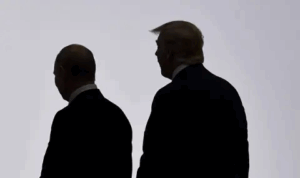
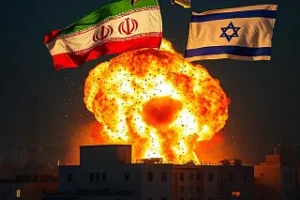
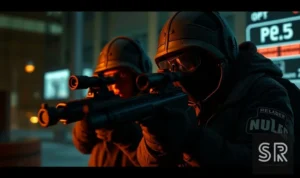
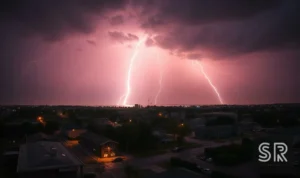
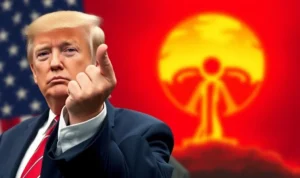
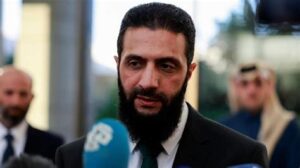
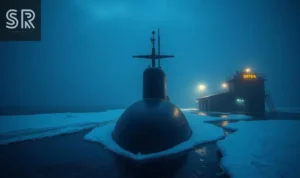
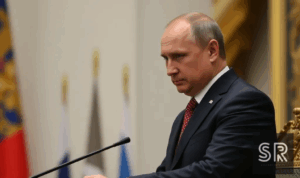
Post Comment